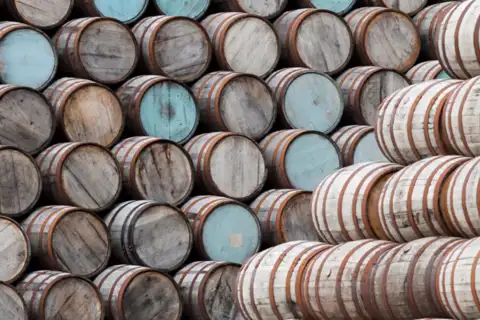What is the best whisky in the world?
Colin Hampden-White - Keeper of the Quaich and IWSC judge - tells us about how whiskies are really judged, and what it means to be the 'best whisky in the world'.
Colin Hampden-White
Table of contents
- An introduction to judging whisky
- Variable factors
- Always the best for everyone?
- Be the judge yourself
- Looking to learn more?
An introduction to judging whisky
There are plenty of whisky competitions, with many declaring what is the best whisky in the world each year. Each competition declaring a different whisky as winner. How can the consumer believe in these results? How are these results formed and do they really matter?
There are a few major factors in which whiskies win at competition. Who the judges are, what they think, their methodology, and of course, which whiskies have entered. A whisky can only win if it has been entered. For example, would one call Justin Gatlin the fastest man in the world at the Rio Olympics in 2016 if Usain Bolt hadn’t entered the same race? In a whisky race, the winner is only being compared and declared to be the best against the other spirits entered in the competition.

Variable factors
The judges
The next set of factors vary with every competition. Who the judges are, and their expertise. If a competition is trying to determine the best whisky at a retail revel for consumers, then judges who have experience of buying at a retail level would make sense. If it were to determine the best whisky from purely a quality perspective, then sensory professionals, like blenders and distillers for example would be best equipped. For an overall view, journalists and top bar tenders who have tasted a great deal of variety would be well suited to judge. For an overall view, a mixture of the above would be a good idea.
Methodology
The methodology is the next factor to look at. Firstly, how many judges are there. Too few and the results are very niche, too many and the results can be diluted by too many opinions. How many samples are being tasted each day by each panel (judges are usually placed in panels to be able to cover large numbers of entrants), and how many samples are there in a flight. Some competitions just as few as 15 samples a day, other competitions will judge as many as 80 samples in a day. A judge’s palate does get tired through the day so a whisky tasted at the beginning of the day will taste different at the end of the day if it were tasted again.
Economics
Economics play a part. In an ideal world, fewer whiskies would be tasted each day with the best judges. Competitions which have a high number of entrants, and these tend to be the most respected, this is not possible. The venue hire and judges’ compensation all has to be budget for. One must trust the judges have enough expertise to taste many samples in one day. A method to combat this is to have a second tasting of whiskies which are either judged to be not good, and those which are judged to be excellent. Some competitions retaste every failed whisky and every whisky presented with a gold medal.

Always the best for everyone?
In the cask trading world, the best whiskies as judged by competitions around the world might not reflect the market. For example, independent bottlers will have a very good idea of what their customers like to buy and drink. They would be out of business if they didn’t. And what the independent bottlers buy, and bottle rarely reflects the results in competitions. The same can be said of which whiskies sell in bars. Again, economics play a strong part in which whiskies are the most popular in bars. Casks of whisky should not be bought simply because that brand has won a competition or dismissed because it has no medals at all.
Be the judge yourself
So, are the medals worth the glue used to adhere them to the glass? One thing is usually true. Those whiskies which gain gold medals, trophies, or credited with being the best whisky in their category, region, or even the world, will all be very good whiskies. The medals give a very good indication of whether one should buy them or not. But whisky is such a personal preference, that the nuances of which one is better than another is best determined by those that buy and drink them. The fun is your journey finding the best whisky in the world.

For transparency, Colin is currently a judge for the IWSC, World Whisky and Drinks Awards, London Competitions, the Swiss Spirits Review, People’s Choice Awards and has judged at many other competitions in the past.
Looking to learn more?
Download our Cask Ownership Guide to understand more about owning a whisky cask, or get in touch today to speak to a member of the team. Whether you are curious about the world or cask whisky or want to pick your next cask to purchase, our expert team can help.



